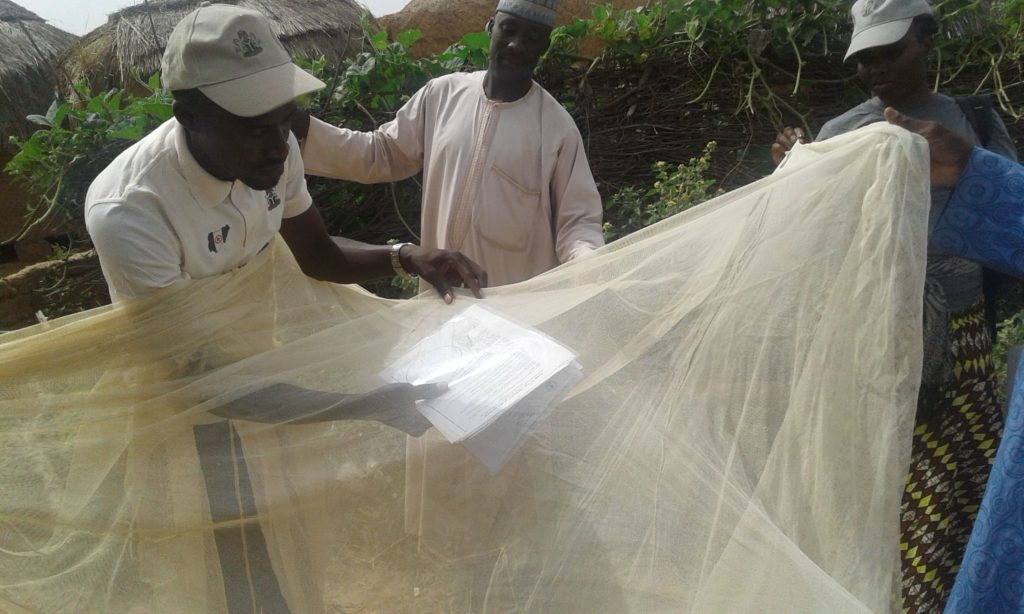Funders
U.S. President’s Malaria Initiative (PMI) / John Hopkins Center for Communication Programs
Location
Democratic Republic of Congo, Ghana, Kenya, Liberia, Mozambique, Nigeria, Tanzania
Dates
2014-2019

Malaria prevention with long-lasting insecticidal mosquito nets (LLIN) has seen a tremendous scale-up in sub-Saharan Africa in recent years; however, studies have suggested that the physical durability among LLINs may vary significantly. These differences are largely driven by environmental and behavioural factors but may also be driven by differences in textile quality, and regular monitoring of LLIN durability should be implemented by country programmes.
As part of the PMI VectorWorks project, a five-year $60 million led by the John Hopkins Center for Communication Programs, Tropical Health designed a comprehensive set of tools for implementing a standardized approach to durability monitoring, and led monitoring of six LLIN brands in eight countries: Mozambique, Democratic Republic of Congo (DRC), Nigeria, Tanzania, Ghana, Liberia, and Kenya.
Tropical Health used a prospective cohort design for durability monitoring, in which representative samples of households from each district were recruited at baseline, one to six months after the mass campaign. All campaign nets in these households were labelled and followed up at 12, 24, and 36 months post-distribution.
Tropical Health assessed the physical condition and reasons for attrition of the nets at each timepoint, and synthesized findings into a Final Study Report for national programmes, PMI, and manufacturers, which were disseminated by VectorWorks. Results were also written up for publication in peer-reviewed journals.
The findings were presented to each National Malaria Control Programme and to donor agencies, and have informed discussions on the ideal replacement interval between mass distributions, social and behaviour change strategies to improve net care behaviours, and quality control of LLIN products. Findings were also shared with LLIN stakeholders through webinars and at Roll Back Malaria partners meetings. The comprehensive toolkit is currently in use by other partners to conduct standardized monitoring of additional LLIN products in other locations.
Global Fund / Nigeria National Malaria Elimination Programme
Nigeria
2023 - 2024
Sightsavers, Ghana Somubi Dwumadie (FCDO)
Ghana
2022-2023
Global Fund MOSASWA (Mozambique, South Africa and Swaziland) region
Mozambique
2022-2023